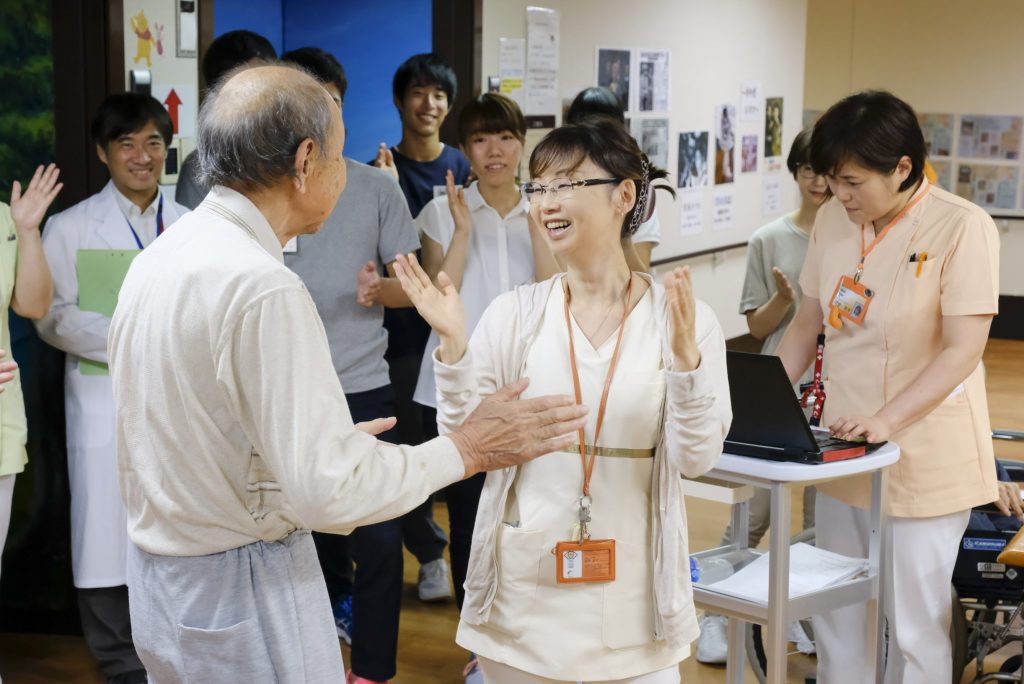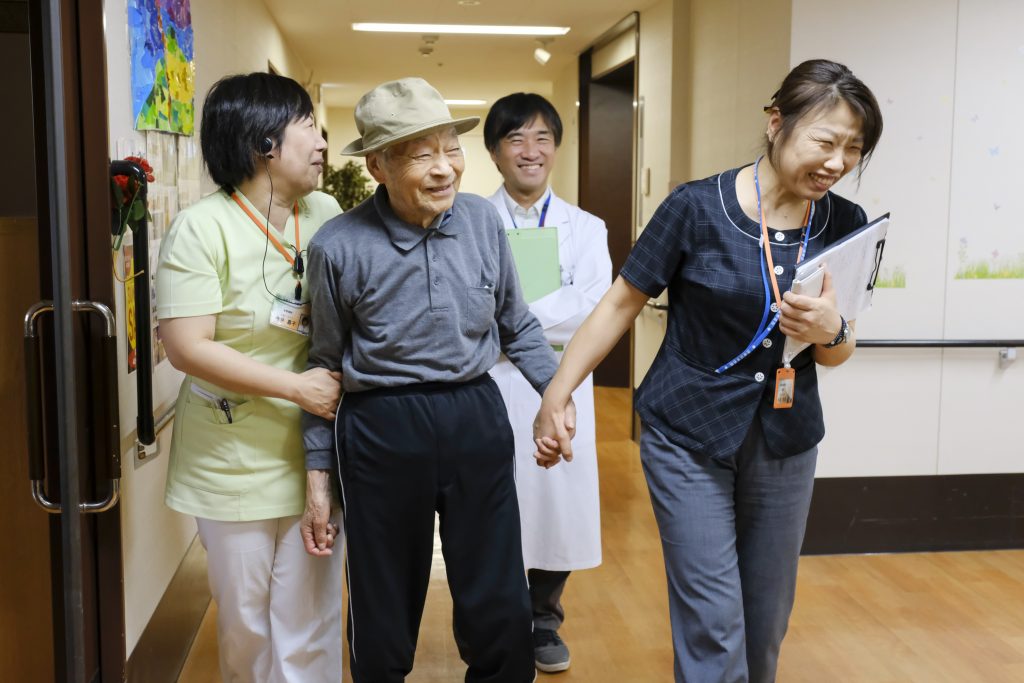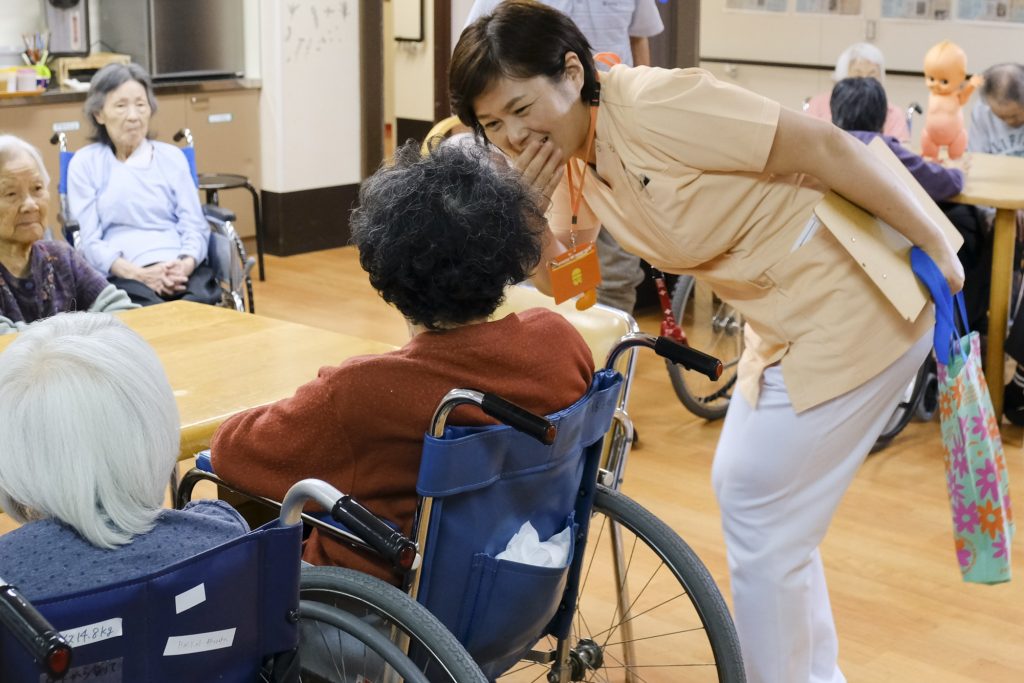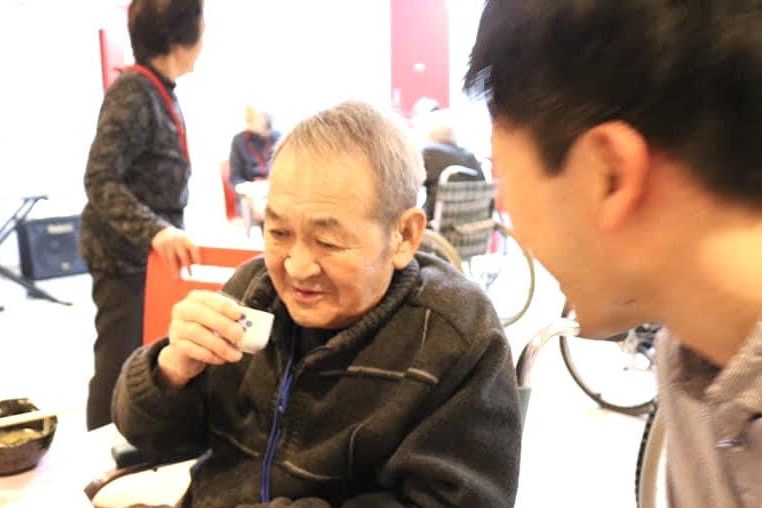2021 HAPI 2nd Prize Winner
Taiseikai found that care using the “Taiseikai Style” considerably alleviated BPSD in over 80 percent of dementia cases within one week of hospitalization, which also lessened the burden on caregivers and staff. Most importantly, the patients became calmer, enabling them to spend peaceful days in the hospital or in many cases, to return to their lives in their community.
In addition to medical care routines, Taiseikai has established a comprehensive system to support people with dementia living in the community in a concerted public-private effort with municipalities, social welfare councils, police, elementary schools, and local citizens. Taiseikai community activities include mock missing persons exercises, as people with dementia can be prone to wandering. They offer accident prevention measures to support people in driving automobiles or in giving up their driver’s license if appropriate, they help people in transitioning to long-term care insurance, and so on. They have also created activities for people in rehabilitation or who have been discharged from the hospital to support them in identifying social roles to play.
Implementing the Taiseikai Style requires buy-in from staff at all levels. Rather than just telling staff not to use physical restraints because it robs people of human dignity, they have found it is more persuasive to have managers share evidence of the effectiveness of the Taiseikai Style care and give staff a clear understanding of how it benefits both the patient and the caregiver.
Over the past 20 years, the Taiseikai Group has continued to carry out research and analysis to improve their techniques and have broadly shared their findings through publications, site visits, and lectures. The significant impact of the “Taiseikai Style” has made it possible for society to pursue an environment where people with dementia are respected as individuals with their own rights.
KEYS TO SUCCESS
- The innovation was developed with a clear and understandable goal for providing care without the use of physical restraints.
- Instead of taking a top-down approach for imposing this goal, evidence-based techniques were used for staff training to achieve buy-in.
- A person-centered approach is used that emphasizes the human dignity of people with dementia; service providers are conscious of the life and background of the people they care for and prepare surroundings that enable these people to live in a way that’s true to themselves.
- Establishing both public and private partners in the community raises awareness and ensures that people with dementia continue to receive support after being discharged from hospital.
Related Resources





